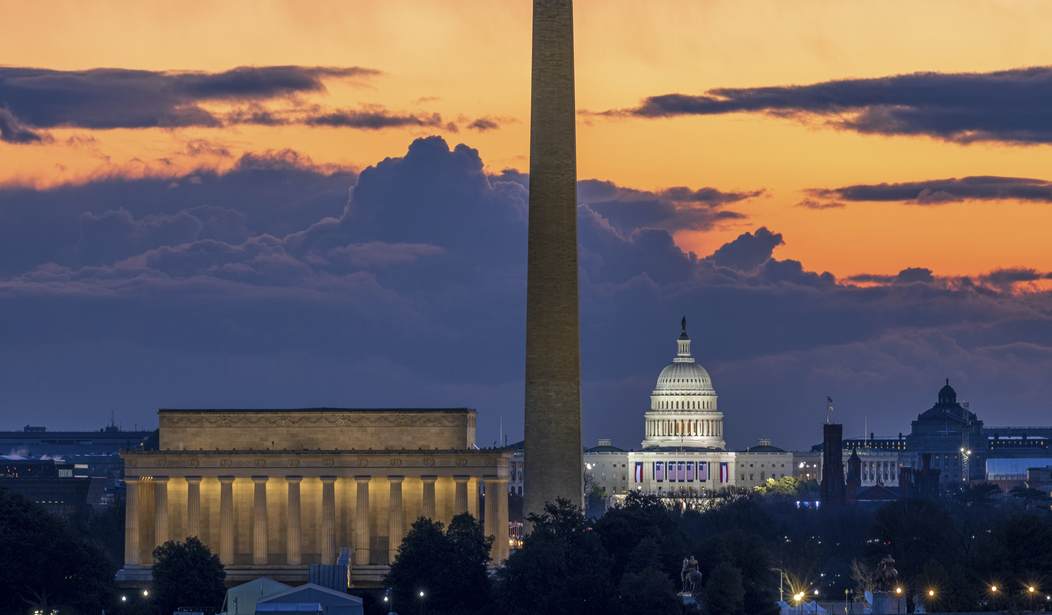With the ever increasing warnings about the alleged danger of “Christian nationalism,” however ambiguous that term might be, it is only fair to ask: Is America a Christian nation? And, just as importantly: Has America ever been a Christian nation? And how does this relate to Christian nationalism?
One of the latest fear-provoking headlines, this one posted on Mother Jones, stated plainly, “It’s a Good Time to Start Worrying About Christian Nationalism.” This contrasts with the assessment of the Catholic New York Times journalist Russ Douthat who noted that “today’s religious conservatives are mostly just normal American Christians doing normal American Christian politics, not foot soldiers of incipient theocracy.”
Is this what is meant by Christian nationalism? Earlier this month, I restated my views on the subject. Here, we’ll focus on the question of whether America is (or was) a Christian nation.
In June 2007, President Obama created a firestorm when he said on CBS, “Whatever we once were, we are no longer a Christian nation — at least, not just. We are also a Jewish nation, a Muslim nation, a Buddhist nation, a Hindu nation, and a nation of nonbelievers.”
Two years later, during a press conference in Turkey, he said that we Americans “do not consider ourselves a Christian nation, or a Muslim nation, but rather, a nation of citizens who are, uh, bound by a set of values.”
This caused quite an uproar across the country, as many Christians raised their voice in protest. “Of course this is a Christian nation. Who doesn’t know that?”
Responding to Obama’s comments in April 2009, attorney and professor John Eidsmoe wrote, “There is a sense in which this writer agrees with him. Unlike England at the time of our nation’s founding, we do not have an official state church. And I don’t want one — I don’t want Barack Obama to be the head of the church.
Recommended
“But that’s not what the U.S. Supreme Court meant when, in Church of the Holy Trinity v. United States, 143 U.S. 437 (1892), they held that ‘this is a Christian nation.’ They meant that this nation was founded on biblical principles and that those who brought these biblical principles to this land and who implemented those principles in our system of government were for the most part professing Christians who were actively involved with Christian churches. In my book Christianity and the Constitution: The Faith of Our Founding Fathers (Baker Book House, 1987, 2008), I demonstrate that at least 51 of the 55 delegates to the Constitutional Convention were members of Christian churches and that leading American political figures in the founding era quoted the Bible far more than any other source.”
Can we say, then, that America was a Christian nation?
If we mean that it had strong Christian foundations, that it was presupposed that the vast majority of Americans would be professing Christians and that Christianity, in that sense, was privileged in our country, then the answer would be yes. America was a Christian nation.
If we mean that Christianity was the required state religion or that, as Americans we conducted ourselves as fully Christian, the answer is no. Just ask the Native Americans and the early African American slaves to weigh in if you have any doubts.
What about today? Is America a Christian nation – or at least, was it a Christian nation in 2007 when President Obama made those initial remarks?
If we mean that America is (or, recently was) Christian in the sense of “majority Christian,” with Christian holidays and customs having a more privileged place in our society than do Islamic or Buddhist or Hindu holidays and customs, the answer is yes.
In that sense, America is a Christian nation just as Israel is a Jewish nation, even though the large majority of Israeli Jews are not observant. In the same way, some other countries are Muslim, rather than Christian or Jewish, even though many of their people are not religious Muslims.
Surely, America is Christian rather than Buddhist Muslim, or Hindu, even though the percentage of professing Christians in America has dropped from over 78 percent in 2007 to less than 65 percent today.
Or, to put this in the simplest terms, the statement, “Americans celebrate Christmas” is overwhelmingly truer than the statement, “Americans celebrate Ramadan.”
On the other hand, if we mean that America is (or, recently was) Christian in the sense that the overwhelming majority of Americans are committed Christians, or that we are a pro-life nation or a sexually moral nation – you can fill in the blank – the answer is not.
Any effort. then to seek to impose Christian values on others, not in terms of advocating for our values in the public square and the voting booth, but in terms of forceful imposition, is misguided and dangerous.
What, then, should our attitude be as committed followers of Jesus?
First, we should view America as part of a fallen world, therefore in need of the gospel. Our nation has been a ripe mission field for many years.
Second, at the same time, we should appreciate the many positive aspects of America, most particularly our freedoms, which are a direct result of the best of our Judeo-Christian roots. And we should lose those freedoms to advocate for our values.
Third, because we are not a Muslim or Hindu nation, we should recognize that the key to America’s well-being is a healthy, thriving, life-giving church. Revival in the church could lead to an awakening in society. Both are desperately needed.

























Join the conversation as a VIP Member